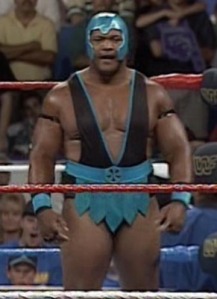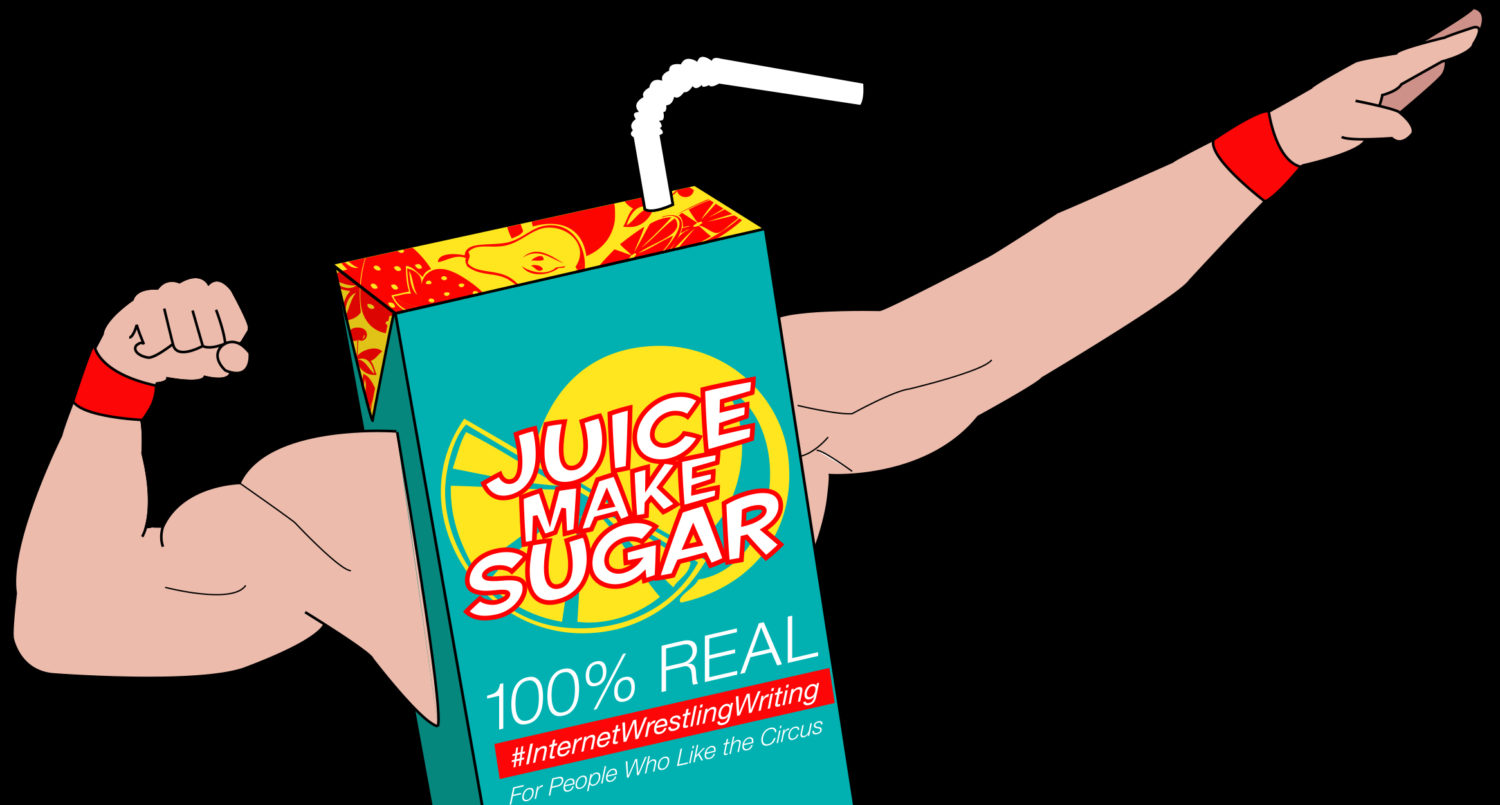It’s the First Day of #TheNationWeek. In celebration of this month’s Survivor Series, we’re taking a look at famous stables from the wonderful world of wrestling. This is the twelfth installment in our (patent-pending) Juice Make Sugar Wrestler of the Week series. As always we’ll start by making The Nation a Stable You (Should) Probably Know Better, then give you the finer points of their oeuvre tomorrow with some Essential Viewing. On Wednesday, we’ll be asking you to Watch and Learn. After Hump Day, we get our Buzzfeed with a Top 10 List before finishing everything off on Friday with a Difference of Opinion (where JMS HQ hopefully doesn’t erupt in a giant race kerfuffle like that episode of Community.)
Race is, of course a societal construct, but it is still a thing in society. There’s any number of things that are affected by “race” — like “personal identity” and “your worldview” (see: privilege, White) — and within the context of those things, it is still necessary to acknowledge it.
 I didn’t know any of this when I was 9. So, when Ron Simmons — by then going by not just Faarooq, but Faarooq Asaad and wearing the worst ring gear in the history of wrestling (no, that picture on the right isn’t Photoshopped) — decided to form what was essentially the Nation of Islam in the WWF, I didn’t understand the gravity of what was happening.
I didn’t know any of this when I was 9. So, when Ron Simmons — by then going by not just Faarooq, but Faarooq Asaad and wearing the worst ring gear in the history of wrestling (no, that picture on the right isn’t Photoshopped) — decided to form what was essentially the Nation of Islam in the WWF, I didn’t understand the gravity of what was happening.
As David Shoemaker’s brilliant piece — an excerpt from his pretty swell book — highlights, wrestling history is wrought with embarrassing examples of what could most generously described as “some racist ass shit”. Stars as prominent and recently relevant as Booker T — easily the most decorated African-American wrestler ever — had to deal with the type of overt racism insensitivity that most of us have only read about in history books. In a storyline that seems like it was pulled directly from 12 Years a Slave, T and his brother debuted their seminal tag team, Harlem Heat, as two “wrestling prisoners” who were WON IN A CARD GAME by plantation-owner-themed-wrestling-promoter Colonel Parker.
To go from that — which happened in 1993, a full year after the Rodney King riots — to a militant Black Power stable just 3 years later highlights precisely how schizophrenic professional wrestling can be when there is money to be made.
And boy, howdy, did they make some money.
Like the Montreal Expos of the mid-90s, the Nation of Domination is nearly as significant for its “on the field” performance as for the careers it helped spawn. Headlined initially by the aforementioned Simmons — the first African-American World’s Champion — the stable would help launch the careers of two more “first ballot” Hall of Famers, Mark Henry and The Rock, help Charles Wright (AKA Kama Mustafa AKA The Godfather) achieve his lifelong dream of being Intercontinental Champion — and manager of a strip club.
While there are stables that match the sheer star power of the Nation, few were more successful doing EVERYTHING that NOD managed to do in its relatively short existence: transition D-X past the Shawn Michaels era, turning Triple H-The Rock into super megastars through those feuds, created midcard stars like The Godfather and D’Lo Brown, while still managing to feel A) culturally significant and B) relevant to the storylines of the organization.
What allowed the Nation to do this was obvious: while they were undoubtedly heels, what they were saying made sense. Wrestling treated pretty much every minority for much of its existence almost hilariously bad, only using them to fill in stock stereotypes or to appeal to very specific audiences as Stepin Fetchit caricatures of whatever group the poor sap represented.
“By Any Means Necessary”, while so obviously cribbed from Malcolm X, worked as a rallying cry for the group because it was their means of acquiring what they wanted — and not their belief that they deserved it — that made them heels. It’s hard to imagine that they thought it through to that level, but the Nation functioned largely in a symbolic sense as the line between heels and faces. And there was ample evidence that taking what they thought they deserved “by any means necessary” was precisely what young black performers needed to do to get over in the company.
Ahmed Johnson — who you can check out by taking a look at Ahmed Johnson Week — shows you what a “face” African American looked like for much of the WWE’s history: someone unable to connect with fans because of any number of personality and health issues, presented essentially as an “amazing athlete with a rough upbringing” and little else.
Which is why, ultimately, the WWE needed the Nation just as much in front of the camera as it did behind the camera, and has most certainly paved the way for some of the young African American stars you see today like Big E. Langston and the Prime Time Players. Unable to figure out how to market young black men to a predominantly white audience, they needed a group of talented young men who happened to be black to show them how to do it: working to get what you think you deserve, and grabbing it, By Any Means Necessary.


[…] Juice Make Sugar Wrestler of the Week series. As always we started by making The Nation a Stable You (Should) Probably Know Better. Today, we give you the finer points of their oeuvre with some Essential Viewing. On Wednesday, […]
[…] Juice Make Sugar Wrestler of the Week series. As always we started by making The Nation A Stable You (Should) Probably Know Better, then gave you the finer points of their oeuvre tomorrow with some Essential Viewing. On Wednesday, […]
[…] Juice Make Sugar Wrestler of the Week series. As always we started by making The Horsemen a Stable You (Should) Probably Know Better. Today, we give you the finer points of their oeuvre with some Essential Viewing. On Wednesday, […]
[…] Juice Make Sugar Wrestler of the Week series. As always we started by making The Horsemen a Stable You (Should) Probably Know Better. Tuesday, we gave you the finer points of their oeuvre with some Essential Viewing. Today, in […]